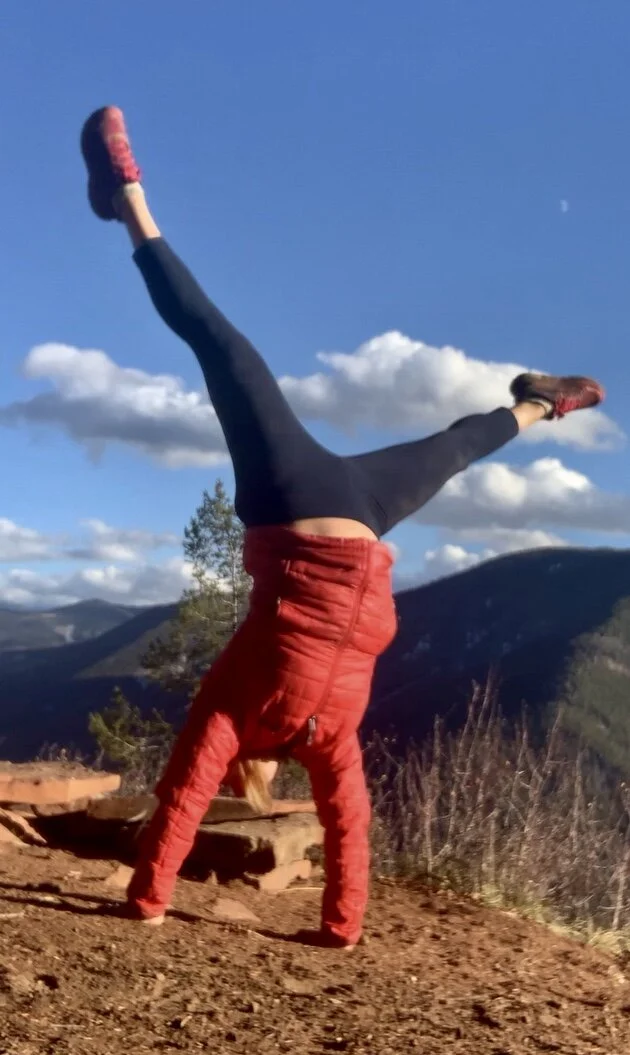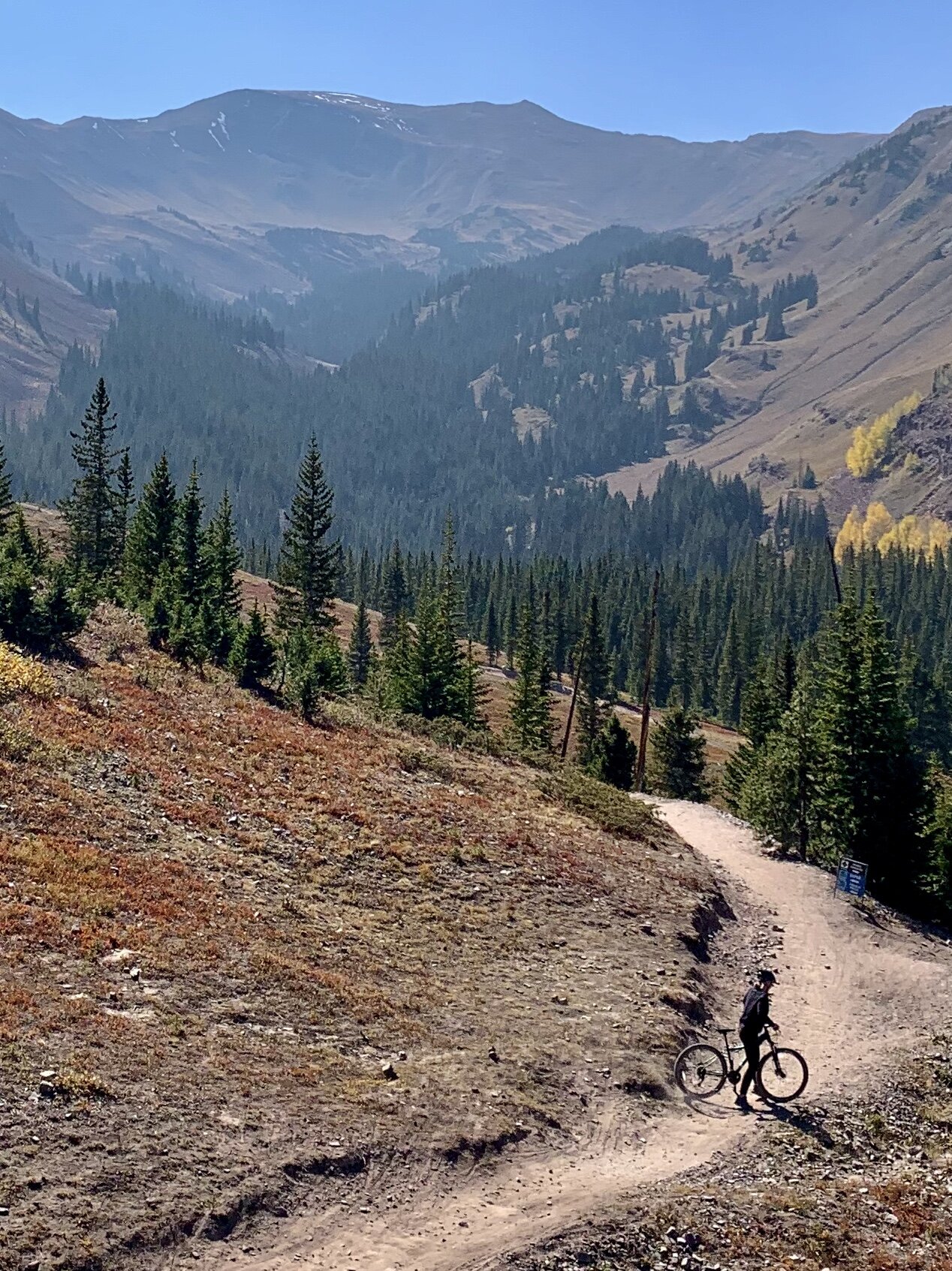Welcome to Colorado: Now please leave.
/With so many people fleeing to the valley to escape urban living in the age of Covid, the million dollar view keeps going up in value,
I WAS AT WHOLE FOODS THE OTHER DAY and noticed a family I presumed just arrived from California. They had that look—the slightly startled expression of people from out of town who desperately want to blend in. They were all dressed as if it were late fall and not the middle of summer; the two young boys clad in grossly overpriced designer hoodies from Aviator Nation, skinny jeans, and vintage sneakers. They hovered over the Kombucha, debating the best flavor of the confusingly popular fermented tea, as if that were even possible. As an afternoon rainstorm blew in and temperatures outside plummeted to the mid-sixties, I'm sure these beach babies were all second-guessing their decision to flee California like a bunch of Covid refugees.
They are no doubt part of the convoy of city slickers seeking refuge across the border (or borders if count Nevada and Utah). They have flocked here in droves to quell the panic caused by climbing case counts and overwhelmed city hospitals, trading in the cosmopolitan conveniences they once coveted for the clean mountain air of Colorado. They have come for the promised land, where lot sizes are measured in acres and not square feet, where highways have only two lanes, where backroads go on for miles, and not every neighborhood street ends in a cul-de-sac—or in other words, a dead end.
It’s really no surprise that in the age of Covid, people are reevaluating their quality of life, fleeing urban centers for more open spaces.
They’re casting off the shackles of corporate culture, of lives spent in cars and airplanes, and untying the tie that binds (literally, as in neckties and suits). They are trading the corner office for a home office, where they don’t have to shave or shower, where they can hide whatever they are wearing (or not wearing) from the waist down in Zoom meetings.
Evidence of this mass exodus is everywhere: from heavy traffic and busy hiking trails to record-breaking real estate sales and long-term rentals. As we head further and further out into wilderness areas to try to escape crowded places, I’m beginning to wonder: is the middle of nowhere now obsolete?
“Where are all these people coming from?” I asked Ryan as we drove up the Frying Pan in unusually heavy traffic, an endless stream of RVs, campers, and precariously top-heavy Sprinter vans, all loaded down with enough outdoor equipment to fill a sporting goods store.
“I can’t wait for all these people to leave,” I said as we sat in the conference room at Land Title, signing the documents for our re-fi. I was trying to make small talk with the title agent who sat pressed into the farthest corner of the room looking wary and fatigued under her mask, what, since sharing air with us could be potentially fatal. This was a somewhat happy occasion for us, the 2.75 percent interest rate we’d just locked into on a 15-year mortgage. So maybe we’re all trapped in the nightmare that is this pandemic, and our quiet little piece of paradise is being invaded by hipsters from the city, but at least we’ll have our house paid off by the time Levi graduates from high school.
“Oh, they’re not going anywhere,” the title agent said. “They’re all staying.”
She told us she’d had over 60 closings so far in July, most of which were buyers from out-of-state who wanted to relocate here. She said the public schools were accruing waitlists, unable to accommodate the sudden influx of new students, especially because many of these new residents are also second home owners who decided to live here full time and enroll their kids in local schools.
The influx of urban refugees (or rather, millionaires) isn’t all bad. We got our cheap mortgage and my realtor friends are killing it as houses that sat on the market for months are now creating bidding wars. Why not share the wealth? Isn’t there space for us all?
Besides, what makes them any different? After all, I decided to move here for the same reasons—maybe not to escape city life during a pandemic, but to escape where I was living before I came here.
I never understood the concept of calling yourself a local, as if that entitles you to some kind of special status, as if they should just lock the gates and throw away the key once you arrived. How many years do you have to put in before you get call yourself a local, to have the right to carry on as if you own the place, scoffing at visitors and newcomers, even though they’re the ones who sustain our economy?
Ultimately, calling yourself a local insinuates you’ve had to make some sort of sacrifice to build a life here. You didn’t just buy your way in. You worked hard (most likely at menial jobs for low wages plus tips), made connections, and built relationships. Maybe you qualified for affordable housing or invested in a free market property when the time was right like we did. Whatever it was, it was attached to a passion for this place, these mountains, for powder days and wild nights, to celebrate a certain freedom of spirit and adventure. We became friends in shared gondola cars and lift lines, through mutual friends we met at backyard barbeques or hikes to Crested Butte. We bonded on mountain bike rides and skinning up Tiehack. We gathered at local hangouts, establishments that paid their dues and earned their staying power by making a true commitment to this place and its community.
Maybe these people are coming from states where people don’t want to wear masks, but hopefully after they spend more time here, they will fall in love with this place and this community the same way we did. Then, they will respect us and our laws.
After all, what’s that thing we keep saying? We’re all in this together.
With wildflowers in bloom, vegan chocolate chip cookies and vintage Porsches,





















